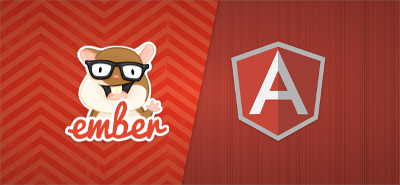The decision will certainly become a bureaucratic one made by management folks who don't care about the low-level details. So which one will it be?
- Ember.js – "Framework for Creating Ambitious Web Applications", or
- AngularJS – "Superheroic JavaScript MVW Framework"
So if these so-called enterprise companies have to undergo a big change anyway, and they have to choose between something totally new (Ember) or something new but kind of related to a previous version (Angular), then the choice seems completely predictable though perhaps not the most logical.
Who cares if the next version of Angular is a complete rewrite, oh dear.
Ember will have to appeal to the rest of the world, all those early adopters, starters, and other small to medium sized companies ready to make the transition and start with a clean slate.
For me Angular is merely a tool to build web frameworks (although they claim otherwise), whereas Ember is truly a web framework in itself. I'm choosing to go the Ember way despite the somewhat steep learning curve, never could get into Angular anyway.
The following quote has been borrowed from the Ember Core Concepts section, and explains the essence of this fine framework.

"Ember.js is designed to help developers build ambitiously large web applications that are competitive with native apps. Doing so requires both new tools and a new vocabulary of concepts. We've spent a lot of time borrowing ideas pioneered by native application frameworks like Cocoa and Smalltalk.
However, it's important to remember what makes the web special. Many people think that something is a web application because it uses technologies like HTML, CSS and JavaScript. In reality, these are just implementation details.
Instead, the web derives its power from the ability to bookmark and share URLs. URLs are the key feature that give web applications superior shareability and collaboration. Today, most JavaScript frameworks treat the URL as an afterthought, instead of the primary reason for the web's success.
Ember.js, therefore, marries the tools and concepts of native GUI frameworks with support for the feature that makes the web so powerful: the URL."











